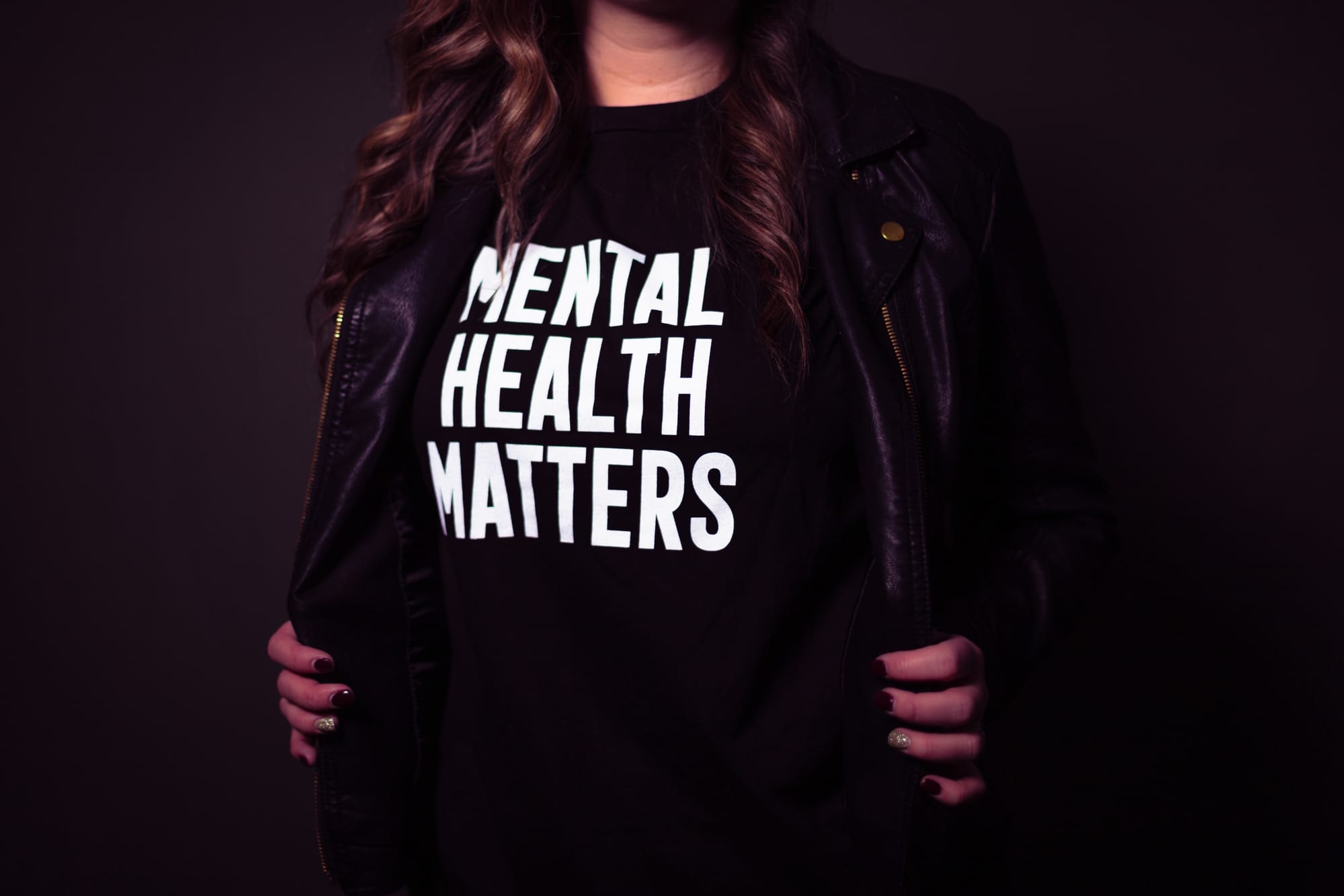9 tips to help you improve your mental health.

Jason Brien.
1. Develop and/or maintain religious or spiritual faith/belief; Religious and spiritual faith and beliefs can positively influence our mental health. Faith is the belief, assurance or conviction that something or someone higher than ourselves has our best interests at heart. A solid belief that we are loved or that the universe doesn’t have an intentional or malevolent agenda towards us. Research has shown that prayer and meditation can have positive mental health benefits and can assist us to calm our minds and bodies. Religion and spirituality can also make us more resilient and less susceptible to stress, trauma and unexpected changes.
2. Learn to challenge and replace your negative thoughts; If you can challenge and replace your negative thoughts, you will have more control over your feelings and behaviours. For example, ask yourself questions such as “Is there another way that I can view this thought”, “Is there any evidence that my thought is correct”, or “What can I expect to happen if I don’t challenge this thought”? Alternatively replacing negative thoughts with positive thoughts might look like “I am useless” = “I can do a lot of things”, “I am a loser” = “A lot of people like me”.
3. Avoid loneliness as much as possible; Loneliness is a distressing feeling that accompanies the perception that one’s social needs are not being met by their social relationships. Research has shown that perceptions of loneliness can negatively affect cognitive performance, can lead to cognitive decline, diminished executive control (working memory, flexible thinking, and inhibitory control) and can increase the risk of developing Alzheimer’s Disease and Dementia. Loneliness is a contributing factor to both suicidal ideation and completed suicides. The risk of suicidal ideation and completed suicides increases as perceptions of social isolation and loneliness increases.
4. Watch out for invalidation; Invalidation occurs when someone intentionally or unintentionally dismisses, rejects or minimizes our thoughts and feelings. Invalidation implies that our subjective experience is somehow wrong, unimportant or unacceptable. A single invalidating person can rob us of our emotional experiences and make us question our entire sense of reality. A group of invalidating people can rob us of our true selves and can force us to present society with a false self which is created purely to appease others and thus minimise further invalidation.
5. Practice gratitude; Gratitude is an emotion which can be experienced when we receive something that we didn’t expect. Likewise we can experience gratitude when people are unexpectedly kind to us (a random person compliments you, you have a positive relationship with another) or when we are truly able to recognise how lucky we are to be alive and how lucky we are to be surrounded by the beauty of all that exists alongside us. Researchers have shown that gratitude is positively correlated with life satisfaction, positive affect and happiness and negatively correlated with depression, negative affect and physical aggression.
6. Embrace healthy conflict; Conflict is a clash between people which arises from a difference in thought process, attitudes, understanding, interests, requirements, values, beliefs, morals and much more. Not all conflict results in bad or negative outcomes. Conflict can help us to release pent-up frustration and it can also help us to gain new insights into ourselves and others. Conflict encourages innovation as it can challenge the status quo and increase productivity. Conflict is not something to be afraid of. Conflict is an opportunity to raise concerns, air grievances and come to mutually beneficial outcomes.
7. Set goals for yourself; Goal setting is a great way to keep ourselves on track and ensure that we stay committed to achieving our successes. The key to effective goal setting is not just setting SMART goals (S - Specific and clear, M - Measurable and meaningful, A - Achievable and attainable, R - realistic and rewarding and T - Time-based), but also identifying any obstacles which could prevent us from achieving our goals and achieving our successes. Obstacles can be internal or external. Internal obstacles are our mental blocks. The negative thoughts, conditioned beliefs, introjections, perceptions of skills/abilities, self-confidence, etc. External blocks can be attributed to a lack of access to resources, lack of support, fierce competition, social prejudices, stereotypes, biases, market needs, etc, etc.
8. Value the power of self-reflection; We can learn more about our relationship with ourselves and others if we engage in honest self-reflection. We need to be honest when examining whether we are in a healthy relationship with ourselves and others. An honest appraisal does not require judgement or condemnation. It is simply an acknowledgment that we could be treating ourselves and others better, kinder, more lovingly, etc. Self-reflection also enables us to learn from our past mistakes or learn better ways of interacting with ourselves or others in the future. Self-reflection is not hyperfocus. Self-reflection involves looking backwards briefly in order to extract valuable lessons.
9. Treat yourself respectfully; Studies have shown that people who engage in critical, demeaning and discouraging self-talks and thoughts are at an increased risk of mental health problems compared to those who don’t. The ability to treat ourselves respectfully can be challenging especially if our minds are overrun by negative thoughts and unhealthy introjections. If we were raised in a loving, caring and nurturing environment, then that environment would have provided us with the positive and healthy skills necessary to teach us how to respect ourselves. If we were not fortunate enough to have been raised to value self-respect, we are going to have to put in the hard work to teach it to ourselves.
Resources
Eunson, Baden. (2012). Conflict Management (pp37–57). Hoboken, NJ: Wrightbooks.
https://www.ncbi.nlm.nih.gov/pmc/articles/PMC3835442/
https://www.researchgate.net/publication/279403394_Gratitude_in_Practice_and_the_Practice_of_Gratitude
https://www.researchgate.net/publication/233784842_Gratitude_and_Well-Being_Who_Benefits_the_Mostfrom_a_Gratitude_Intervention
https://www.ncbi.nlm.nih.gov/pmc/articles/PMC4225959/?fbclid=IwAR0rluEvqxvc33IFjgzMCZFXlTdtrCCHZrmbVfaEDi5dWC8CNSleGFuv-I0
https://www.ncbi.nlm.nih.gov/pmc/articles/PMC3874845/?fbclid=IwAR2hmpqeCzYSnxO3n2E8_jUYZSuG4dC6RF2-VnyNpmXK7r4I05LwDNpJZ0s